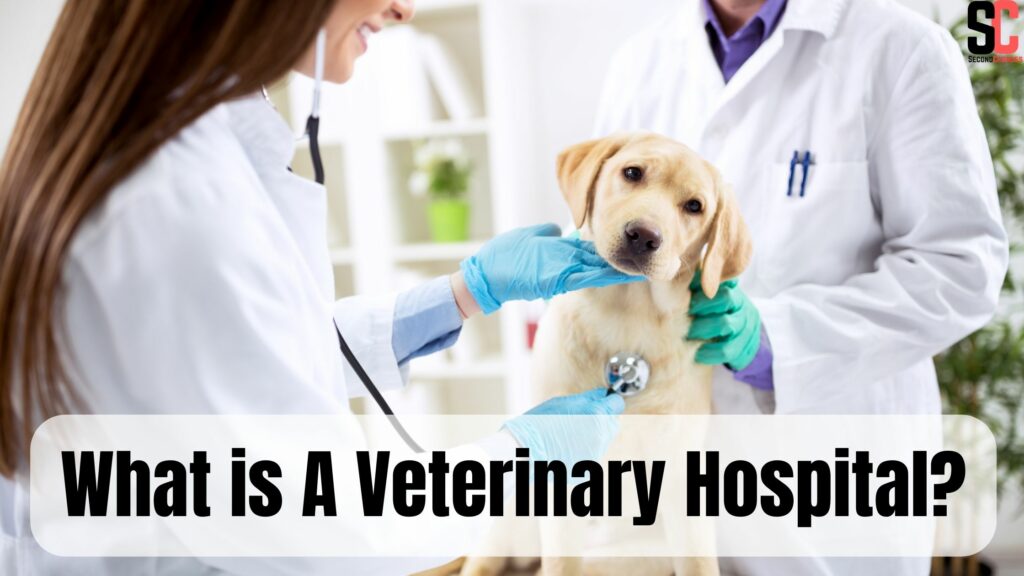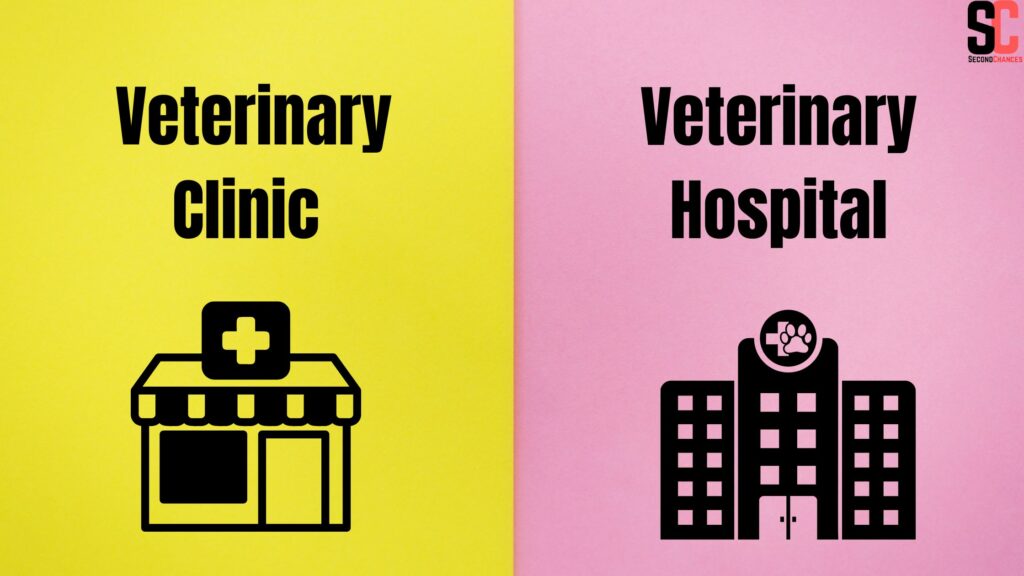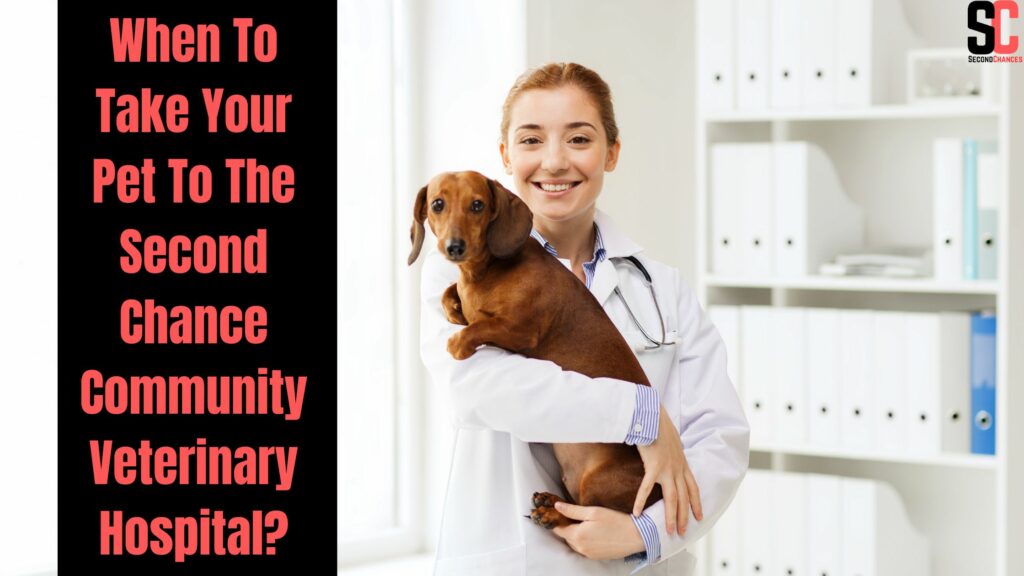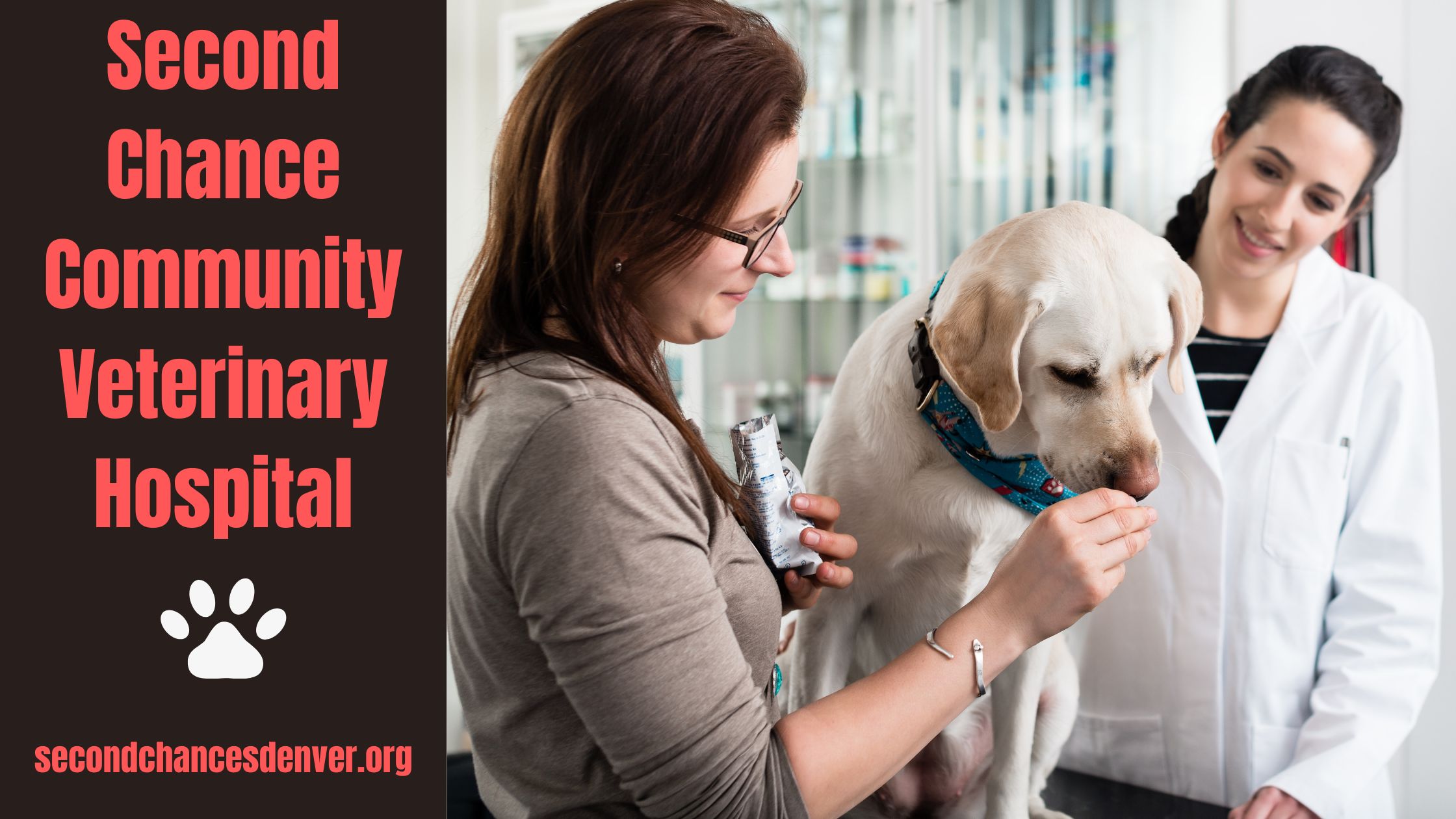Do you have a pet and would like to learn more about Second Chance Community Veterinary Hospital? You’ve come to the right place.
There is a preventative health care plan available at most veterinary clinics. A good health period for your pet may be prolonged by using this strategy. You can use these visits to discuss diet, exercise, immunizations, medications, and other concerns with your veterinarian.
The purpose of this guide is to provide an overview of Second Chance Community Veterinary Hospital. How does it work, and what is it?
Let’s get started.
Table of Contents
What is Second Chance For Animals?
The Second Chance Animal Shelter (SCAS) has been providing innovative programs and services to animals since 1999. The SCAS promotes best practices in animal sheltering and prevents unwanted litters, offers low-cost veterinary services, and places pets in permanent homes.
There is something unique about their philosophy. It has been far too long since animal welfare has focused only on pets already in shelters. The goal of SCAS is to prevent pets from entering shelters in the first place by focusing on the root causes of animal suffering. Their programs and services help people and their pets stay together. These include education, surrender prevention, and low-cost veterinary care.
What is A Veterinary Hospital?

In a veterinary hospital, animals are treated, diagnosed, and prescribed medications. The primary functions of a veterinary hospital are to rear, care for, breed, conduct research on nutrition, and develop products in addition to treating wounds, diseases, and disorders of animals.
The term veterinary hospital refers to a facility or structure used for treating or diagnosing animals. The hospitals also provide the necessary care.
Types of Second Chance Community Veterinary Hospital
Companion Animal Veterinarians
The most common veterinarians in this category are general practitioners. They specialize in caring for small animals, including cats, dogs, and some pocket pets. A general Practitioner is the equivalent of your family doctor. They can provide most types of pet care, including medical and surgical procedures, diagnostics, and treatments.
Veterinary Specialists
A companion animal veterinarian is the General Practitioner of human medicine, while a veterinary specialist is the Orthopedic Surgeon and Oncologist. A veterinarian can specialize in over 20 recognized fields, such as cardiology, dentistry, anesthesiology, and more. They undergo advanced training in post-veterinary school programs to become certified or board-certified in their specialty.
Exotic Animal Veterinarians
These veterinarians are specially trained to care for exotic animals, including pocket pets, reptiles, amphibians, and birds. A veterinarian who specializes in exotic animals might treat pets, and a veterinarian who treats animals at the zoo or other wildlife habitats might treat pets. A few of them also pursue exotic animal specialist training.
Livestock, Food, And Large Animal Veterinarians
A veterinarian who specializes in large animals or livestock, such as horses and cattle, sheep, pigs, and goats, is one of these professionals. Their training is specifically geared toward these types of farm animals. The vast majority of large animal veterinarians work at a large animal veterinary hospital, while others travel to the homes of their patients in specially equipped vehicles.
Laboratory Veterinarians
A veterinarian can work behind the scenes in areas such as infectious disease diagnosis, pathology, animal feed production, pharmacology research, and many more. Veterinary doctors are not as visible to the public, but they are vital to the health of all animals.
Veterinary Hospital vs. Veterinary Clinic: What Is The Difference?

There are many different names you can choose from when choosing a veterinary practice for your pet, such as:
- The veterinary hospital
- The animal hospital
- An animal hospital
- The animal clinic
The terms “veterinary” and “animal” are virtually interchangeable, but hospitals and clinics are different. The term veterinary or animal hospital usually refers to a full-service veterinary clinic. In contrast, the term veterinary or animal clinic usually refers to a practice that offers paired back or limited services.
There is no difference in quality of care between hospitals and clinics, but “hospitals” provide a broader range of care.
How Important is Second Chance Community Veterinary Hospital?
Your family pet’s health care regimen should include regular checkups, pet dental care, and grooming to keep them looking and feeling their best. A pet parent’s goal is to provide the best possible preventive care for their furry friends so that they can live as long and healthy as possible.
A pet is an extension of a family for its owners. In the same way, you would care for a member of your own family, it stands to reason that you would want to take care of your pet the same way.
A pet’s health also depends on regular doctor visits and veterinary care. A routine visit to the veterinarian can identify and treat numerous issues before they worsen. You should ensure that your pet’s health is as strong and healthy as possible by keeping an eye on it.
How You Can Help Second Chance Community Veterinary Hospital?
Second Chance Community Veterinary Hospital will arrange a free pick-up of your car, truck, motorcycle, RV, or boat when you fill out the form below. You can deduct your donation from your taxes while helping a cause that’s close to your heart!
Almost all vehicles can be picked up within 24 to 72 hours after you donate them. Vehicle pickup is always free of charge. After picking up your car, you’ll receive a donation receipt, which our team will turn into cash for our cause. You will also receive proper tax forms from us in time to file them after your vehicle has been sold.
When To Take Your Pet To The Second Chance Community Veterinary Hospital?

When you think your home is pet-proof, curious jaws will show you what you have forgotten. The following signs might indicate that your pet needs to be seen by a veterinarian:
- Pets who refuse food usually have a problem with appetite loss.
- We should evaluate the frequency and severity of vomiting and diarrhea if they become chronic.
- A urinary tract infection (UTI) could indicate irregular urination that requires antibiotic treatment.
- Consumption of excessive amounts of water is a sign of kidney disease or diabetes.
- A happy pet that becomes irritable suddenly may be in pain and needs to be seen by a veterinarian.
The experience of raising a dog or cat can be rewarding but also terrifying.
What Vaccinations Does My Pet Need?
There are many factors that determine your pet’s vaccination schedule, and every pet has its own vaccination needs. Most animals receive core vaccinations, meaning that every animal of that species gets the same injections.
A dog’s core vaccinations include:
- Parvovirus
- Adenovirus-2
- Distemper
- Parainfluenza
A cat’s core vaccinations include:
- Feline herpesvirus
- Feline panleukopenia
- Feline calicivirus
- Feline leukemia virus
FAQs
Why is It Important To Help Animal Shelters?
Every year, shelters take in millions of stray, abandoned, and abused animals, and by adopting an animal, you help make room for others. Your adoption fee directly supports shelters like Second Chance Animal Shelter North Brookfield, giving animals a second chance and aiding their ongoing care.
What Animals Go To The Second Chance Community Veterinary Hospital?
The most popular pets continue to be dogs and cats, but also care for horses, birds, and exotic animals, including snakes, lizards, and reptiles; rabbits and pocket pets, including rats, gerbils, and hamsters, as well as small and large farm animals.
Are Veterinarians Profitable?
The average profit margin for a veterinary clinic is 10% to 15%, according to Today’s Veterinary Business. The rate for emergency and specialty care is 15% to 25%.
Conclusion
A Second Chance Community Veterinary Hospital makes a difference in the lives of more than 40,000 animals every year, including those supported by organizations like Second Chance Pet Adoption League.


